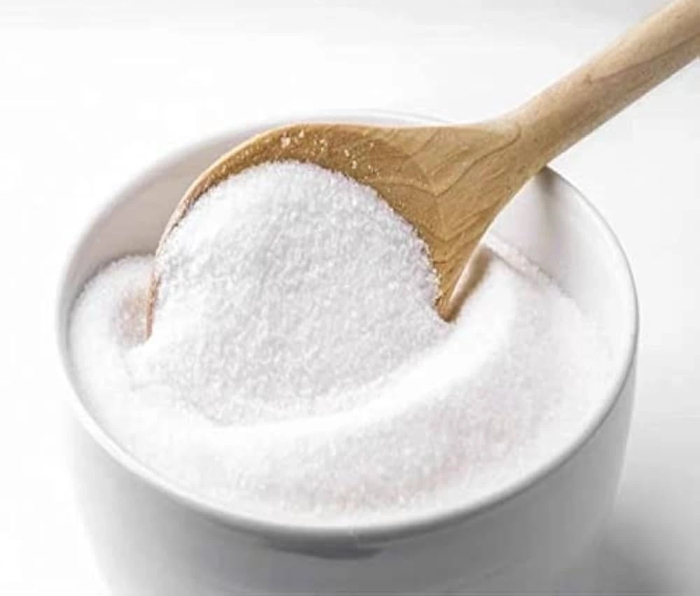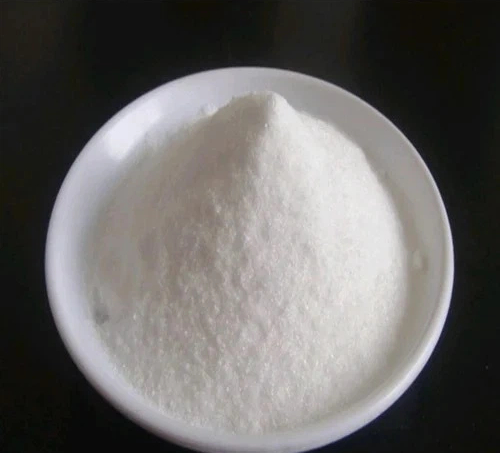Views: 222 Author: Sara Publish Time: 2025-08-10 Origin: Site








Content Menu
>> Key Properties of Erythritol:
● Leading Erythritol Manufacturers and Suppliers in France
>> 2. MOCU Health (France-based source)
>> 3. Additional French Suppliers and Industry Notes
● Applications of Erythritol in Food and Healthcare
>> Food and Beverage Applications
>> Nutraceutical and Pharmaceutical Uses
>> Cosmetic and Personal Care Products
● Quality Standards and Regulatory Compliance
● Innovations in Erythritol Development
● Sustainability in Erythritol Production
● FAQ
>> 1. What makes erythritol from France unique compared to other sources?
>> 2. How does erythritol benefit food and beverage manufacturers?
>> 3. Are French erythritol manufacturers involved in OEM/ODM services?
>> 4. What industries outside food use erythritol?
>> 5. Can erythritol cause digestive issues?
Erythritol, a naturally occurring sugar alcohol, has become a vital ingredient in the health-conscious food, beverage, and medical sectors due to its properties as a low-calorie, non-glycemic sweetener. France hosts several key manufacturers and suppliers of erythritol, providing high-quality products derived principally from natural sources such as non-GMO pears and apples. This article explores the leading erythritol manufacturers and suppliers in France, their production capabilities, the applications of erythritol in various industries, and current trends shaping this market. We also delve deeper into erythritol's health benefits, quality standards, and innovations in product development to provide a comprehensive picture for manufacturers and consumers alike.

Erythritol is a sugar alcohol (polyol) with the chemical formula C4H10O4. Found naturally in fruits, mushrooms, and fermented foods like wine and soy sauce, erythritol is industrially manufactured through fermentation of plant-based starches such as corn or wheat. It possesses about 75-80% the sweetness of sugar but with almost zero calories and no significant effect on blood sugar or insulin levels, making it a preferred natural sweetener for diabetics and health-conscious consumers alike.
- Zero-calorie sweetener
- Non-glycemic and tooth-friendly
- No bitter aftertaste
- Digestive-friendly with minimal side effects compared to other sugar alcohols
- High digestive tolerance compared to other polyols
- Versatile in food, beverage, pharmaceutical, and medical applications
Erythritol's small molecular size allows it to be well absorbed in the small intestine and excreted unchanged, which greatly reduces the typical laxative effect seen with other sugar alcohols like sorbitol and maltitol. This unique digestive profile further enhances erythritol's appeal in health and wellness-focused products.
Jungbunzlauer is a prime player producing erythritol under the brand ERYLITE®. Their French facility in Marckolsheim has significantly expanded its production capacity to meet growing global demand fueled by rising consumer preference for natural, low-calorie sweeteners. Jungbunzlauer's ERYLITE® erythritol is well regarded for its consistent quality, zero-calorie status, and broad industrial applications spanning confectionery, beverages, nutritional supplements, and pharmaceuticals.
They provide powders and granules carefully engineered for seamless sugar substitution, moisture retention, and crystal structure support in food manufacturing. Sustainability is also a core focus, as their production uses renewable starch sources and eco-efficient fermentation processes to minimize environmental impact.
MOCU Health offers erythritol products made from natural, non-GMO French fruits such as apples and pears. Their erythritol confectioner's powder and granules are gluten-free, vegan, keto-friendly, and feature no bitter aftertaste or digestive discomfort. This makes them especially suitable for clean-label food production as consumers increasingly demand transparency and natural origins in ingredients.
MOCU markets its erythritol as a perfect 1:1 sugar substitute for granulated sugar and confectioner's sugar in baked goods, beverages, and other health foods. Their flexibility in offering customized product grades and packaging sizes supports OEM/ODM collaborations aimed at product innovation in diverse markets.
France boasts numerous smaller erythritol suppliers and innovative startups focusing on high-purity natural sweeteners and functional dietary fibers. These companies leverage France's strong heritage in food science and biotechnology, emphasizing non-GMO raw materials and biofermentation methods that comply with the highest food safety and environmental standards.
French erythritol producers typically supply international food and pharmaceutical companies, contributing to OEM/ODM projects for health-oriented sweetening solutions that are compliant with EU regulations and organic certifications. These suppliers continuously invest in research and development to enhance the solubility, sweetness profile, and digestive tolerance of erythritol-based blends.

Erythritol's versatility is a key factor driving its growing adoption across multiple sectors, especially among manufacturers seeking to reduce sugar content without compromising taste, texture, or consumer acceptance.
Erythritol is widely used as a sugar substitute in candies, chewing gums, baked goods, dairy products, and beverages. It enhances sweetness without adding calories, retains moisture, and helps stabilize the structure and texture of low-sugar or sugar-free products. It is a preferred ingredient in sugar-free chocolates, energy bars, and low-calorie drinks targeting health-conscious consumers.
In the pharmaceutical sector, erythritol serves as a bulking agent and sweetener in tablets, syrups, and chewable formulations. Its tooth-friendly and non-cariogenic properties promote dental health, making it useful in oral care products like toothpaste and mouthwashes. Additionally, erythritol's low glycemic impact supports diabetic-friendly nutraceuticals and functional foods designed for blood sugar management.
Erythritol is also finding increased use in the personal care industry as a humectant and moisturizing agent in skincare and cosmetic products. Its natural origin and skin-friendly properties appeal to formulators seeking clean-label alternatives to synthetic polyols and preservatives.
French erythritol manufacturers maintain rigorous quality assurance protocols, aligning with European Food Safety Authority (EFSA) guidelines and international quality certifications such as ISO 22000 and HACCP. Non-GMO and organic certifications are often prerequisites as clean-label trends drive consumer demand for transparency and sustainability.
Manufacturers invest in advanced analytical techniques and traceability systems to ensure product purity, absence of contaminants, and compliance with allergen-free standards. This level of quality control also supports European and global exports where regulatory landscapes require stringent safety and efficacy documentation.
Recent advances include the development of erythritol blends with other natural sweeteners such as stevia, monk fruit extract, and functional fibers to optimize sweetness profiles while maintaining low caloric content and digestive comfort. These proprietary blends target specific market niches such as ketogenic, paleo, and diabetic-friendly diets.
Moreover, improvements in crystallization technology have enhanced erythritol's solubility and texture in complex formulations, broadening its application scope across syrups, beverages, and frozen desserts. Collaborative OEM/ODM projects allow customization in flavor, particle size, and packaging to meet client specifications globally.
Environmental stewardship is central to French erythritol production, with manufacturers emphasizing renewable raw materials, waste reduction, and energy-efficient fermentation processes. The use of plant-based starches from non-GMO crops supports biodiversity and reduces reliance on synthetic inputs. Water recycling and carbon footprint reduction are key performance indicators in modern production facilities.
Sustainability commitments align well with consumer preference for ethically produced and ecologically responsible ingredients, further enhancing the market potential for French erythritol producers.
France is home to several top-tier erythritol manufacturers and suppliers, recognized for their commitment to natural, high-quality sweetener production. Companies like Jungbunzlauer and MOCU Health leverage advanced fermentation technologies and meticulous quality controls to serve a growing global demand for zero-calorie, natural sugar alternatives. These suppliers facilitate industry innovation through OEM/ODM services and continue to expand capacity to meet evolving dietary and regulatory demands. Their erythritol products are integral to the development of healthier foods, beverages, pharmaceutical formulations, and personal care products worldwide. The ongoing focus on sustainability, product innovation, and stringent quality assurance ensures that French erythritol manufacturers remain at the forefront of this expanding market.

French erythritol often originates from non-GMO fruits like apples and pears and is produced with strict adherence to quality and safety standards, ensuring natural purity, superior taste, and consumer trust.
Erythritol provides zero-calorie sweetness without any bitter aftertaste, making it ideal for sugar reduction in confectionery, beverages, and baked goods while also contributing to moisture retention and texture enhancement.
Yes, many French manufacturers offer OEM/ODM services, providing custom formulations, packaging, and blending solutions that allow clients to develop tailored sweetener products targeting various global markets.
Beyond food and beverages, erythritol is widely used in pharmaceutical tablets, nutraceuticals, oral care products, and personal care formulations due to its safety profile and functional humectant properties.
Compared to other sugar alcohols, erythritol is absorbed efficiently and excreted unchanged, which minimizes digestive discomfort for most people when consumed within typical dietary levels, making it a preferred natural sweetener.
[1] https://globaltradeplaza.com/product/erythritol-sweeteners-2
[2] http://money.finance.sina.com.cn/corp/view/vCB_AllBulletinDetail.php?stockid=301206&id=7370608
[3] https://us.metoree.com/categories/6865/
[4] https://cn.galamgroup.com/%E5%85%B3%E4%BA%8E%E6%88%91%E4%BB%AC/
[5] https://mocuhealth.com/products/erythritol-confectioners-sweetener-powder
[6] http://money.finance.sina.com.cn/corp/view/vCB_AllBulletinDetail.php?stockid=002286&id=10970144
[7] https://www.jungbunzlauer.com/en/news/view/jungbunzlauer-increases-capacity-of-eryliter-erythritol-production-in-france
[8] https://pdf.dfcfw.com/pdf/H3_AP202307031591987221_1.pdf
[9] https://mocuhealth.com/products/erythritol-granules
[10] https://www1.hkexnews.hk/listedco/listconews/sehk/2025/0530/2025053000074_c.pdf
